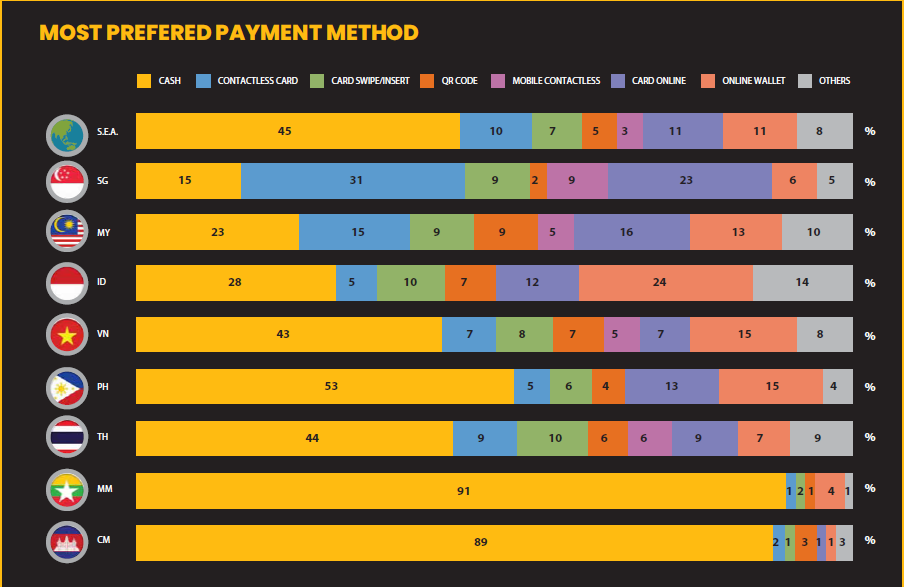Southeast Asia is going cashless. Around 85% of consumers in the region use some form of digital payment ranging from contactless cards to e-wallets, according to the latest Consumer Payments Attitudes Study by payments company Visa.
Singapore leads the way when it comes to cashless payments with a 98% penetration rate, while Myanmar and Cambodia lag behind, notching 64% and 40% respectively.
Survey participants cite a number of reasons for their preference for cashless payments such as wanting to avoid the risk of contact infection and taking advantage of the economical deals being offered on e-commerce platforms.
Visa finds that the ongoing Covid-19 pandemic has sped up the transition to a cashless society in many markets – by five years, in the case of Malaysia. The country has put in place the infrastructure for cashless payments such as the popular JomPAy. Meanwhile, banks in Malaysia have started charging a cheque processing fee, thereby encouraging customers to go digital.
In terms of sectors expected to be fully cashless in the future, the report predicts that areas such as bill payments, ride-sharing, supermarket purchases and overseas travel will experience the most significant progress in the region.
Source: Visa Consumer Payments Attitudes Study 2021
Interestingly, although more consumers in Southeast Asia appear to use cards (72%) compared to e-wallets (60%), e-wallets have gained more favourability partly due to the speed and convenience they offer. Looking to create stickiness among users, many e-wallet providers have integrated discounts and promotional items within their systems to encourage more transactions in their systems.
However, the main question for many e-wallet operators is how to resolve interoperability issues, especially in the face of government-backed payment infrastructure such as India’s Unified Payments Interface (UPI) or Hong Kong’s Faster Payment System (FPS).
The next stage in the cashless journey in Southeast Asia is making cross-border payments more seamless and straightforward. Already, Singapore and Thailand have laid the foundation for such a scheme, recently linking their domestic real-time payments systems to allow for instant money transfer.










